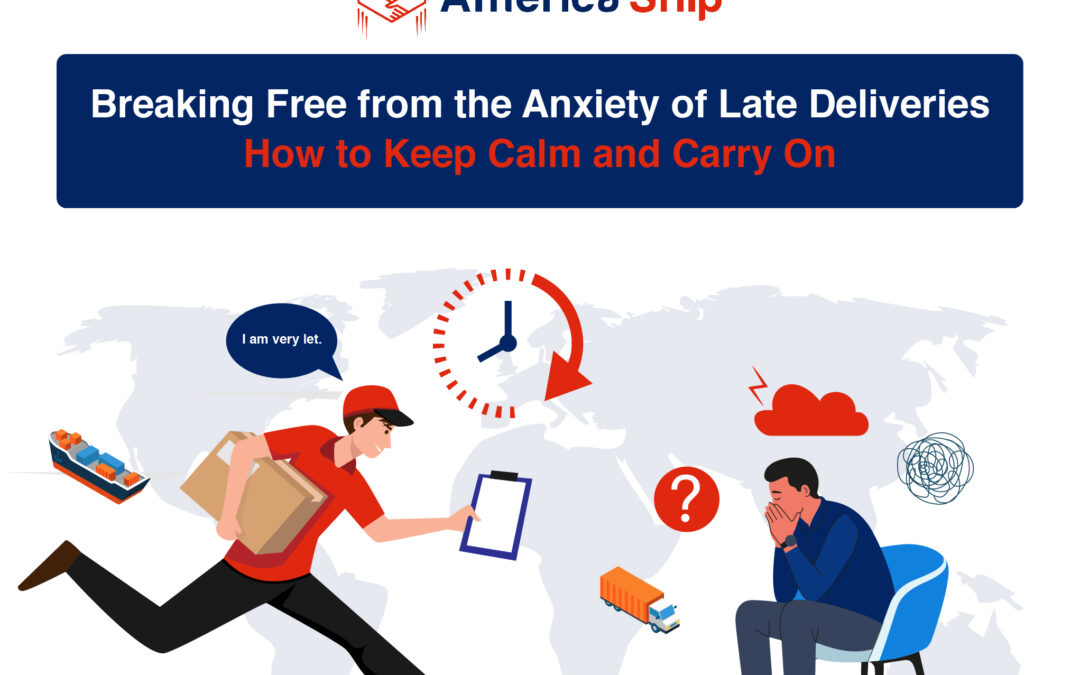The anxiety of late deliveries is a common concern for both businesses and consumers in today’s fast-paced, expectation-driven world. This anxiety isn’t merely about waiting a little longer for a package; it reflects deeper psychological factors like fear of disappointment, loss of control, and concerns about the reliability of a business. Understanding these fears can help businesses develop strategies to alleviate the anxiety of late deliveries, thereby enhancing customer satisfaction and loyalty.
Understanding the Anxiety Around Late Deliveries
Late deliveries trigger anxiety due to the uncertainty they bring to the consumer experience. When customers expect a timely delivery and that expectation is not met, it can lead to frustration and a loss of trust in the service provider. This fear is often exacerbated when the delivery is tied to important events or deadlines, where the stakes feel much higher. For example, missing a delivery date for a gift or a crucial business supply can feel like a significant failure, creating stress and anxiety for both the business and the customer (Psychology Today).
This phenomenon has been further amplified by the high standards set by e-commerce giants like Amazon, which have accustomed consumers to fast, reliable shipping. Any deviation from this norm can cause what is referred to as “delivery FOMO” (fear of missing out), where uncertainty about when or if a package will arrive causes disproportionate stress and anxiety (Barrington Freight).
Strategies to Overcome the Fear of Late Deliveries
- Set Realistic Expectations: To reduce anxiety, it’s essential to set clear and realistic delivery expectations right from the start. Providing accurate delivery estimates and keeping customers informed about any potential delays can help manage expectations and reduce uncertainty. Transparency is key—when customers know what to expect, they are less likely to feel anxious about delays (Barrington Freight).
- Improve Communication: Regular communication is vital in alleviating fears associated with late deliveries. Automated tracking systems that provide real-time updates allow customers to see exactly where their package is and when it is expected to arrive. This visibility helps customers feel in control, significantly reducing the stress of waiting (Psychology Today).
- Offer Compensation for Delays: Offering compensation, such as discounts, future delivery guarantees, or other perks, can help mitigate the negative impact of a late delivery. This approach not only addresses immediate dissatisfaction but also reinforces customer loyalty by demonstrating that the business values their experience and is committed to making amends for any inconvenience caused (Barrington Freight).
- Educate Customers About Potential Delays: Sometimes, external factors like weather, holidays, or logistical issues can cause unavoidable delays. Educating customers about these potential challenges in advance can help set realistic expectations. When customers understand the factors that might affect delivery times, they are more likely to understand if delays do occur (Barrington Freight).
- Empathize with Customer Concerns: Acknowledging the inconvenience that late deliveries can cause and showing empathy towards customers’ concerns can go a long way. Personalized communication that addresses the customer’s specific situation and provides reassurance can help maintain loyalty, even in the face of delivery issues. Empathy fosters positive customer relationships and can transform a potentially negative experience into an opportunity to build trust (Psychology Today).
- Enhance Operational Efficiency: Businesses should continuously strive to improve their logistics processes to minimize the chances of late deliveries. This includes optimizing supply chains, investing in reliable carriers, and utilizing advanced tracking technologies to ensure efficient shipment handling. By proactively addressing potential issues before they arise, businesses can significantly reduce the likelihood of late deliveries and associated customer anxiety (Barrington Freight).
Provide Flexible Delivery Options: Offering flexible delivery options, such as same-day delivery, scheduled deliveries, or pickup locations, provides customers with greater control over when and how they receive their packages. This flexibility enhances the customer experience and reduces the pressure on businesses to meet tight delivery windows (Psychology Today).
Works Cited
1. Consumer Psychology: The Power Of Shipping Times. Barrington Freight
2. The Psychology of Lateness. Psychology Today
How to get started ?
All you need to do is create an account on our platform. Simply click here (https://america-ship.com/sign-up) and fill out the form to get started. If you need assistance or have any questions, feel free to reach out to us at customer.service@america-ship.com or give us a call at (956) 410-1188. We’re here to make your shipping process as smooth as possible.

